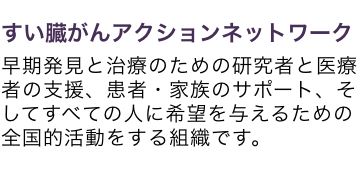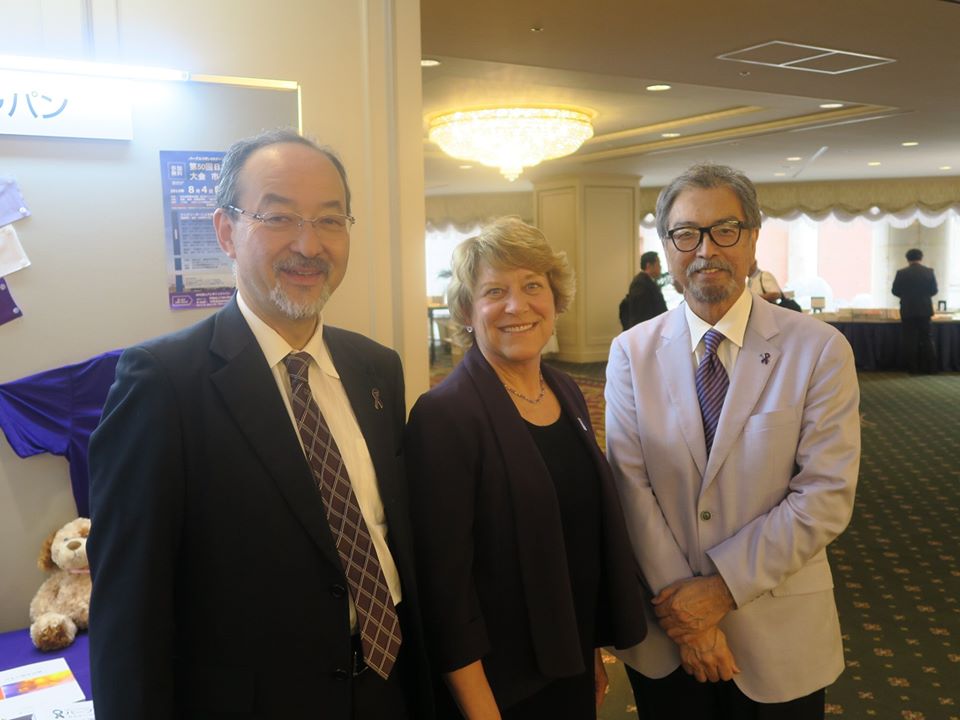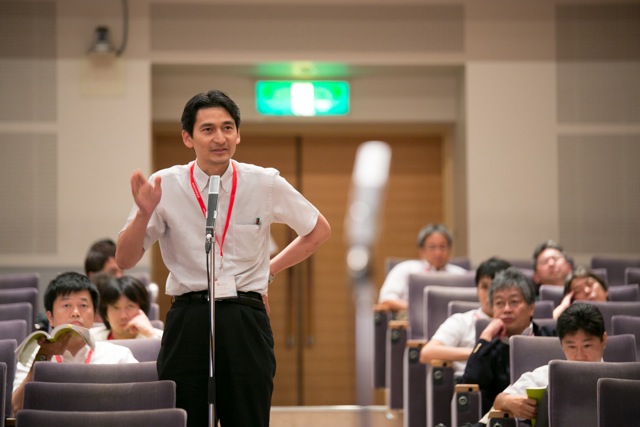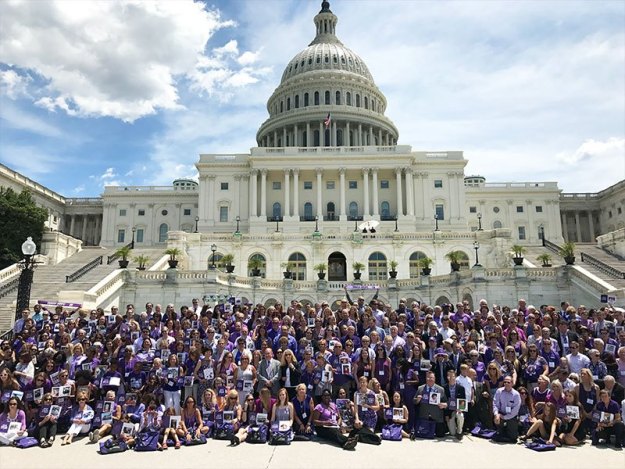NETRF研究公募「神経内分泌腫瘍のTRと臨床プロジェクト対象」
NETRF Announces New Grants for Neuroendocrine Cancer Research
2017年7月19日
2017-2018 Request for Applications Issued
(July 19, 2017, Boston, MA)—The Neuroendocrine Tumor Research Foundation (NETRF) has announced a new round of scientific and clinical research grants, aimed at advancing the treatment of and the search for cures to neuroendocrine tumors (NETs). Though considered uncommon, recent data indicate that NET diagnoses are increasing in prevalence, and now affect about 170,000 Americans.
The grants, which would take effect in 2018, fall into three categories: Accelerator Grants, Investigator Grants, and Pilot Project Grants. Made possible in part by a generous gift from the Margie and Robert E. Petersen Foundation, the grants vary from $50,000 to $1.2 million and run up to four years.
■2018 Research Emphasis ----
1.Translational research
2. Clinical projects
Projects that can lead to better therapeutics that improve the lives of our patients.
■3 Types of Grants:
1. Accelerator Grants -- At least one 4-year Accelerator award in the amount of $1,200,000 ($300K/year).
2. Investigator Grants -- At least one 2-year Petersen Investigator award in the amount of $300,000 ($150K/year).
3. Pilot Project Grants -- One to three 1-year Pilot Project awards not to exceed $100,000 ($50K-100K/year).
■Grants Amounts and Support Period
$50,000 to $1.2Million USD
up to 4 years
■Application Deadline
LOI must be filed by September 5, 2017
■Applications/more information
■Download files:
Made possible by the generous support of our donors and family foundation partners, including the Margie and Robert E. Petersen Foundation, we are pleased to announce the 2017 Request for Applications (RFAs), and we invite Competitive Letters of Intent (LOIs). LOIs should outline research with the potential to transform our understanding of NETs and/or lead to improved treatments and diagnostics for patients.
LOIs may focus on any type of NET and may propose basic, translational, or clinical cancer research. While we continue our interest in pancreatic and gastrointestinal tract NETs, this year we also seek proposals addressing other common but less well researched forms, such as bronchial NETs.
Some areas of interest include but are not limited to: application of existing or new technologies to study, understand and target NETs – the immune microenvironment, nanotherapies, patient-derived xenografs – clinical, correlative, adaptive studies – nuclear medicine, theranostics, imaging – metastasis drivers, chemoresistance, biomarkers.
Submitted LOIs will be reviewed by the NETRF’s Scientific Advisory Board, comprised of highly respected leaders in the field. The investigators with the most promising and transformative ideas will be invited to submit full applications.
Full applications will be peer reviewed by both external expert reviewers and by the NETRF’s Scientific Advisory Board. Members of the Scientific Advisory Board will be recused if investigators from their institutions apply, or if there is another direct or perceived conflict of interest. The review process—including all meeting deliberations, scores and written critiques of applications, as well as other materials provided for the review of applications—is confidential. A confidentiality and conflict- of-interest statement must be signed by each reviewer. Applicants who wish to make reasonable requests to oppose reviewers may do so, explaining the nature of the conflict of interest.
Applications will be evaluated against five criteria, in accordance with NIH guidelines:
§ Significance
§ Approach
§ Innovation
§ Investigators
§ Environment
A statement of institutional commitment, including any tangible support that the institution is willing to commit to the project, is required.
“These are significant grants meant to transform our progress and continue our commitment to attract and support a committed community of investigators dedicated to a cure,” said Ron Hollander, NETRF executive director. “We are looking to attract the best ideas and the brightest researchers and physicians whose work can have a rapid impact on improving care for NET patients.”
To ensure that high-quality, meaningful research proposals are selected, NETRF uses a rigorous peer review process that includes external expert reviewers and a Board of Scientific Advisors. Interested applicants must submit a letter of intent by September 5, 2017. From that pool, exceptional investigators with the most promising and transformative ideas will be invited to submit full proposals. Grant awards will be announced in early 2018.
“We are seeking cutting-edge research proposals that apply novel science and new technologies to help advance existing knowledge and accelerate the development of diagnostic and therapeutic interventions for patients,” said Effie Tzameli, Ph.D., NETRF director of research.
In April 2017, NETRF announced $4 million in collaborative research grants to expand our molecular understanding of NETs and help drive personalized treatment options for patients. These ongoing projects use genomic sequencing, gene editing, and bioengineering to look for actionable targets for treatment.
“In our 2017 grants, we focused on funding teams that could help us unlock the biologic and genomic drivers that cause these tumors to form and grow,” said George Fisher, M.D., Ph.D., co-chair, NETRF Board of Scientific Advisors. “For our 2018 grants, we are looking for a broad range of research──especially translational and clinical projects──that can lead to better therapeutics that improve the lives of our patients.”
The NETRF Board of Directors, comprised of NET patients and family members, reinforced its commitment through this offering. “We are committed to projects based on strong science that can both increase our understanding of these tumors, while also offering real potential for extending and improving patients’ quality of life,” said Joseph Li, M.D., chair, NETRF Board of Directors.
“There have been many recent discoveries that have changed the way some cancers are diagnosed and treated,” said Daniel Chung, M.D., co-chair, NETRF Board of Scientific Advisors. “But the treatment of NETs lags behind. We need to accelerate our search for effective treatments and are looking for transformative ideas.”
NETRF funds research to discover cures and more effective treatments for carcinoid, pancreatic, and related neuroendocrine cancers. NETRF has funded $18.8 million in large-scale, multi-year NET research grants to leading scientists at renowned research institutions, including the top cancer centers in the U.S. and beyond.
For more information go to netrf.org.










